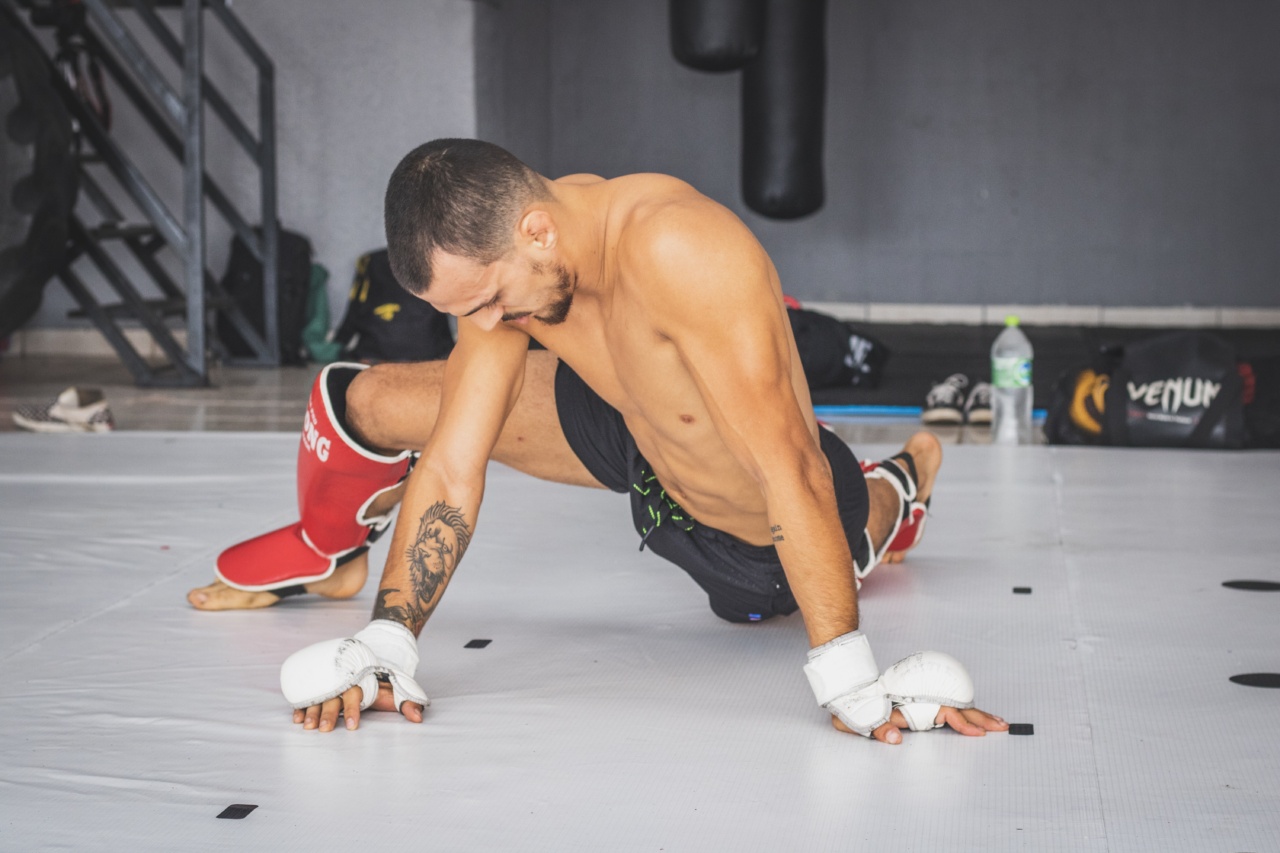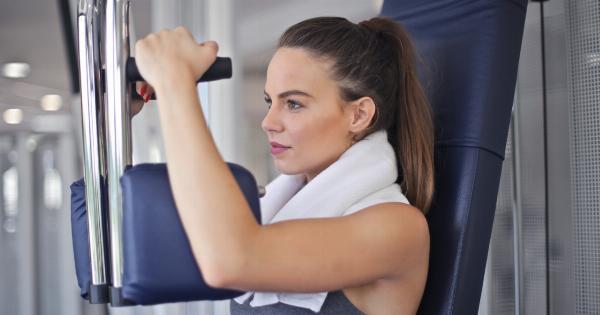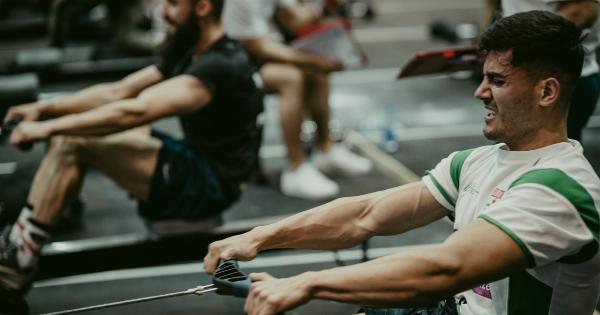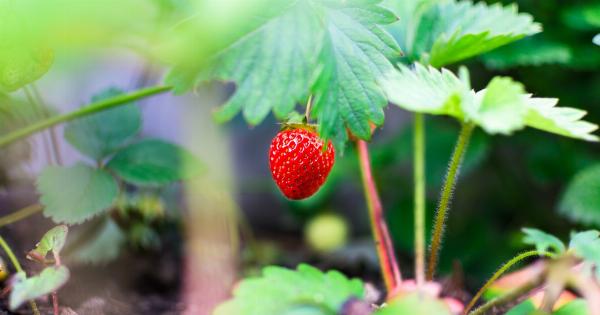When it comes to maximizing your exercise performance, nutrition plays a crucial role. The timing of your meals can significantly impact your energy levels, stamina, and recovery.
Therefore, it’s important to understand whether you should eat before or after your workout to achieve optimal results. In this article, we’ll explore the advantages and disadvantages of consuming food before and after exercise and provide insights to help you make an informed decision.
The Power of Pre-Workout Nutrition
Fueling your body adequately before a workout is essential to optimize performance and avoid fatigue. Here are some key benefits of consuming the right nutrients before exercising:.
1. Increased Energy Levels
Consuming a balanced meal or snack before your workout can provide a sufficient supply of glucose (carbohydrates) to your muscles. This glucose is readily available for energy production, thus boosting your overall performance and endurance.
2. Better Focus and Concentration
Proper pre-workout nutrition can also enhance mental focus and concentration during exercise.
By nourishing your brain with nutrients like omega-3 fatty acids and B vitamins, you’ll experience improved cognitive function, better reaction times, and enhanced coordination.
3. Preserved Muscle Mass
During intense workouts, your body can break down muscle tissue for energy if it lacks readily available fuel sources.
Consuming a pre-workout meal that includes protein can help counteract this effect by providing amino acids to prevent muscle breakdown and support muscle growth and repair.
4. Optimal Hydration
Pre-workout meals should include adequate fluids to ensure proper hydration. Proper hydration enhances blood circulation, nutrient delivery, and waste removal, all of which are crucial for optimal exercise performance.
Considerations for Pre-Workout Nutrition
While pre-workout nutrition offers numerous benefits, it’s essential to consider the following points:.
1. Digestion Time
Timing your meals is crucial to avoid discomfort or gastrointestinal issues during exercise. As a general guideline, aim to consume your meal or snack 1 to 3 hours before your workout, allowing ample time for digestion.
2. Personal Tolerance
Everyone’s digestive system responds differently to various foods. Experiment with different pre-workout meals and snacks to identify what works best for you.
Pay attention to how you feel during your workout after consuming different types of meals or foods.
3. Macronutrient Ratios
The balance of macronutrients (carbohydrates, proteins, and fats) in your pre-workout meal can impact your energy levels and performance.
While carbohydrates are essential for immediate energy, combining them with protein can provide sustainable energy throughout your workout.
Eating After Your Workout: The Importance of Post-Workout Nutrition
While pre-workout nutrition sets the stage for a successful exercise session, consuming the right nutrients after your workout is equally crucial for optimal recovery and future performance. Here are some reasons why post-workout nutrition matters:.
1. Muscle Repair and Recovery
After a strenuous workout, your muscles need to repair and grow stronger. Consuming protein-rich foods after exercise provides the necessary amino acids to support muscle repair and stimulate muscle protein synthesis.
Aim to consume a post-workout meal or snack within 1 to 2 hours of completing your workout for optimal results.
2. Replenishing Glycogen Stores
During exercise, your body depletes glycogen stores, which are the stored form of carbohydrates in your muscles.
Consuming carbohydrates after your workout helps replenish these stores, promoting faster recovery and improved glycogen levels for your next training session.
3. Enhanced Nutrient Absorption
Immediately after exercise, your body’s ability to absorb and utilize nutrients is heightened.
By consuming a balanced post-workout meal or snack, you can take advantage of this window of opportunity to efficiently replenish energy stores and facilitate muscle repair.
4. Hydration and Electrolyte Balance
Rehydrating your body after exercise is crucial to restore fluid balance and replenish electrolytes lost through sweat.
Including hydrating foods or a sports drink that contains both carbohydrates and electrolytes in your post-workout nutrition plan can help you recover faster.
Considerations for Post-Workout Nutrition
While post-workout nutrition offers several benefits, here are a few essential considerations:.
1. Timing
To maximize the benefits of post-workout nutrition, aim to consume a meal or snack within 1 to 2 hours of finishing your workout. This timeframe is when your body is most responsive to nutrient absorption.
2. Macronutrient Composition
Similar to pre-workout nutrition, the right balance of macronutrients is crucial after exercise. Protein should be a priority to support muscle repair, while carbohydrates aid in replenishing glycogen stores.
Including a moderate amount of healthy fats can also provide additional benefits.
3. Individual Needs
Individual requirements vary based on factors such as body weight, exercise intensity, and goals. Tailor your post-workout nutrition to meet your specific needs by consulting a registered dietitian or sports nutritionist.
The Verdict: Timing Matters
While both pre-workout and post-workout nutrition are essential, the timing of your meals can significantly impact your exercise performance.
Ultimately, the decision of whether to eat before or after your workout depends on your personal preferences, workout intensity, and individual goals.
If you prefer exercising on an empty stomach or experiencing digestive discomfort during workouts, consuming a small snack or meal rich in carbohydrates and protein about 1 to 3 hours before exercise can enhance your performance.
On the other hand, if you feel energized and fueled before your workout, you may choose to eat afterwards and prioritize post-workout nutrition to support recovery and muscle growth.
Remember, nutrition is a highly individualized aspect of fitness, and what works best for one person may not work as well for another.
Experiment with different approaches and consult with a healthcare professional or nutrition expert to develop a personalized nutrition plan that aligns with your specific needs and goals.































